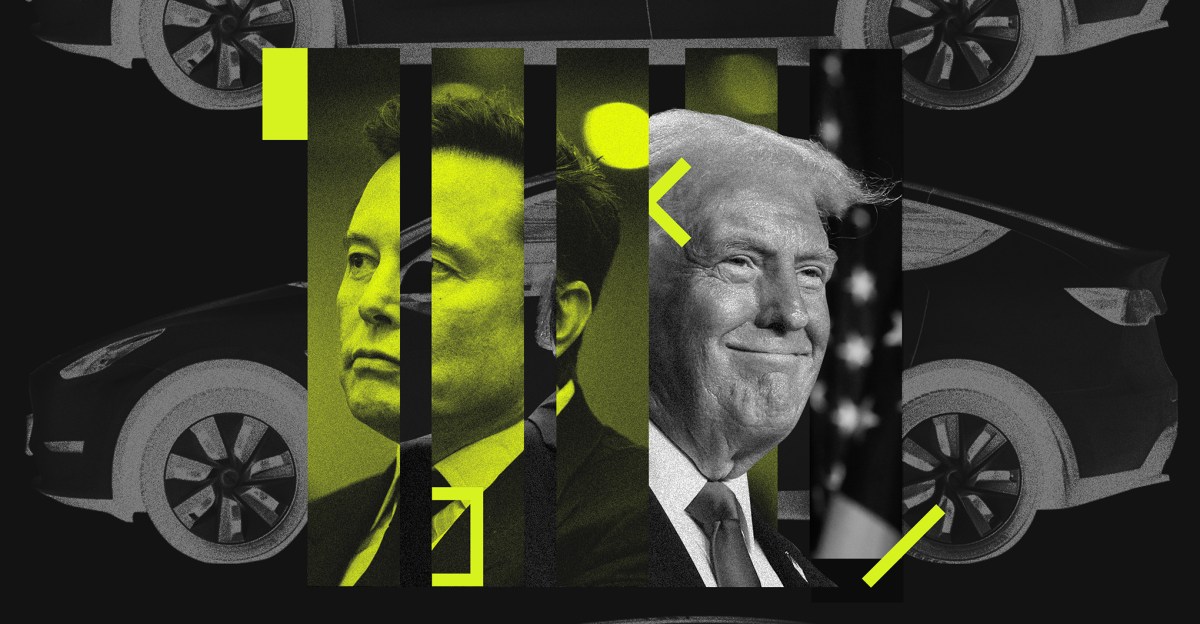Unpacking the Controversy: Musk and Trump Accused of Misinformation by Grok
The digital landscape is evolving at an astonishing pace, and with it comes the ever-complex interplay between social media, misinformation, and the individuals who dominate these platforms. Recently, the platform Grok has sparked a significant debate by blocking results associated with prominent figures such as Elon Musk and Donald Trump, citing concerns over misinformation. This controversial move raises critical questions about content moderation, the responsibilities of tech companies, and the implications for free speech in our increasingly digital world.
The Context of the Controversy
Grok, a social media platform that has gained traction for its unique approach to information sharing, has taken a bold stance in combating misinformation. In an era where the spread of false information can have dire consequences, Grok’s decision to block content linked to Musk and Trump stems from a desire to uphold truthfulness and accountability. But the implications of this action are far-reaching and multifaceted.
Elon Musk, the CEO of Tesla and SpaceX, is known for his provocative tweets and public statements that often blur the lines between fact and opinion. Similarly, Donald Trump, the former President of the United States, has been a polarizing figure whose rhetoric has frequently come under scrutiny for spreading misinformation, particularly regarding topics such as COVID-19 and election integrity. By targeting these high-profile individuals, Grok not only aims to promote reliable information but also finds itself at the center of a heated debate on censorship and free speech.
The Role of Content Moderation
Content moderation is a vital component of social media platforms, tasked with maintaining a balance between free expression and the need to prevent the spread of falsehoods. Grok’s recent actions reflect a growing trend among tech companies grappling with how to handle misinformation. As platforms face increasing pressure from government regulators, users, and advocacy groups, they are forced to establish guidelines that determine what constitutes harmful content.
- Preventing Misinformation: The primary goal of Grok’s decision is to create a safer environment for users by preventing the dissemination of false information that can lead to real-world consequences.
- Public Trust: By taking a stand against misinformation, Grok aims to build public trust, positioning itself as a responsible platform that prioritizes the truth.
- Legal and Ethical Considerations: The platform must navigate a complex legal landscape, balancing its rights as a private company with the ethical implications of content moderation.
The Free Speech Debate
At the heart of this controversy is the question of free speech. Critics argue that blocking content linked to influential figures like Musk and Trump is a form of censorship that undermines democratic values. They contend that the ability to express diverse viewpoints is essential in a healthy society, even if those views are controversial or discomforting.
Supporters of Grok, however, maintain that the platform’s actions are justified in the interest of public safety and truthfulness. They argue that unchecked misinformation can lead to dangerous consequences, including public health crises and societal division. The challenge lies in finding a balance: how can platforms protect users from harmful misinformation while still allowing for robust debate and discussion?
The Implications for Users and Society
The implications of Grok’s actions extend beyond the platform itself. As users, we must consider how these decisions affect our access to information and our ability to engage in meaningful conversations. Here are some potential impacts:
- Information Access: Users may find themselves in echo chambers, where only certain viewpoints are allowed, limiting exposure to diverse opinions.
- Trust in Platforms: As Grok takes steps to moderate content, users may either feel more secure in their information sources or develop skepticism towards the platform’s bias.
- Future of Political Discourse: The political landscape may shift as platforms like Grok redefine what is acceptable speech, influencing the way politicians communicate with constituents.
The Global Perspective on Misinformation
The issue of misinformation is not confined to the United States; it’s a global challenge that affects democracies worldwide. Various countries have implemented their strategies to combat misinformation, often leading to contentious debates around censorship and freedom of expression.
For example, in Europe, several nations have enacted laws aimed at curbing the spread of false information online. These legislative efforts often spark discussions about the balance between protecting citizens and infringing on individual rights. The global nature of the internet complicates these issues further, as misinformation can cross borders in an instant, making it difficult for any one country to effectively manage its spread.
Future Directions for Grok and Similar Platforms
As Grok navigates the fallout from its recent actions, it must consider several pathways forward:
- Transparent Policies: Grok should aim for transparency in its content moderation policies, clearly communicating the criteria used to determine misinformation.
- User Engagement: Involving users in discussions about misinformation and content moderation can foster a sense of community and shared responsibility.
- Technological Innovations: Investing in advanced technologies, such as AI, to help identify and flag misinformation while minimizing censorship could be a game changer.
Conclusion
The controversy surrounding Musk and Trump’s accusations of misinformation by Grok is a microcosm of the larger debate regarding content moderation, free speech, and the responsibilities of social media platforms. As we move forward into an increasingly digital age, the challenge lies in balancing the need for accurate information with the fundamental right to free expression. Grok’s actions may serve as a catalyst for broader discussions about how society can navigate these complex issues effectively, ensuring a healthier discourse for all users.
Ultimately, as digital citizens, we must remain vigilant, advocating for transparency and accountability in the platforms we use while fostering an environment that encourages diverse perspectives and constructive dialogue.
See more Future Tech Daily

